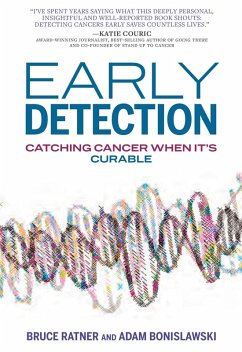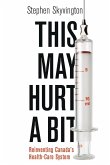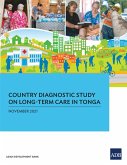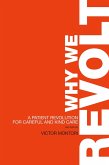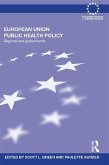In an accessible yet fastidiously researched intervention Early Detection sets out the urgent necessity of fundamentally re-directing the US's approach to cancer treatment if President Biden's recently announced prioritization of the issue is to be successful.
Catching cancer early remains the single best approach to fighting this deadly disease, the second-leading killer both in the US and worldwide. Yet, the health system often fails to do so, even when the necessary tools are available. Early Detection looks at shortcomings in cancer screening efforts and how early detection procedures can be expanded and improved..
Early Detection explores cancer screening systematically and scientifically, examining the subject from the level of individual tests all the way up to the roles and incentives of large healthcare systems and the federal government. It looks not only at the scientific challenges involved but also the social and organizational challenges, an angle that has been traditionally under-covered but is especially relevant in light of the COVID-19 pandemic.
The book also highlights the disparities of race and economic class that affect access to early screening. This problem exists throughout the medical system overall but, when it comes to early detection, the problem becomes especially far-reaching from both an ethical and an economic point of view.
In teaming together, Bruce Ratner and Adam Bonislawski combine the passions of someone touched deeply by the experience of cancer and the cool analysis of an expert in medical policy and science. They tackle the subject with a combination of breadth and granularity, exploring why early detection has not been given the level of priority it deserves, and the ways it can dramatically reduce cancer deaths in this country.
Catching cancer early remains the single best approach to fighting this deadly disease, the second-leading killer both in the US and worldwide. Yet, the health system often fails to do so, even when the necessary tools are available. Early Detection looks at shortcomings in cancer screening efforts and how early detection procedures can be expanded and improved..
Early Detection explores cancer screening systematically and scientifically, examining the subject from the level of individual tests all the way up to the roles and incentives of large healthcare systems and the federal government. It looks not only at the scientific challenges involved but also the social and organizational challenges, an angle that has been traditionally under-covered but is especially relevant in light of the COVID-19 pandemic.
The book also highlights the disparities of race and economic class that affect access to early screening. This problem exists throughout the medical system overall but, when it comes to early detection, the problem becomes especially far-reaching from both an ethical and an economic point of view.
In teaming together, Bruce Ratner and Adam Bonislawski combine the passions of someone touched deeply by the experience of cancer and the cool analysis of an expert in medical policy and science. They tackle the subject with a combination of breadth and granularity, exploring why early detection has not been given the level of priority it deserves, and the ways it can dramatically reduce cancer deaths in this country.
Dieser Download kann aus rechtlichen Gründen nur mit Rechnungsadresse in A, D ausgeliefert werden.

